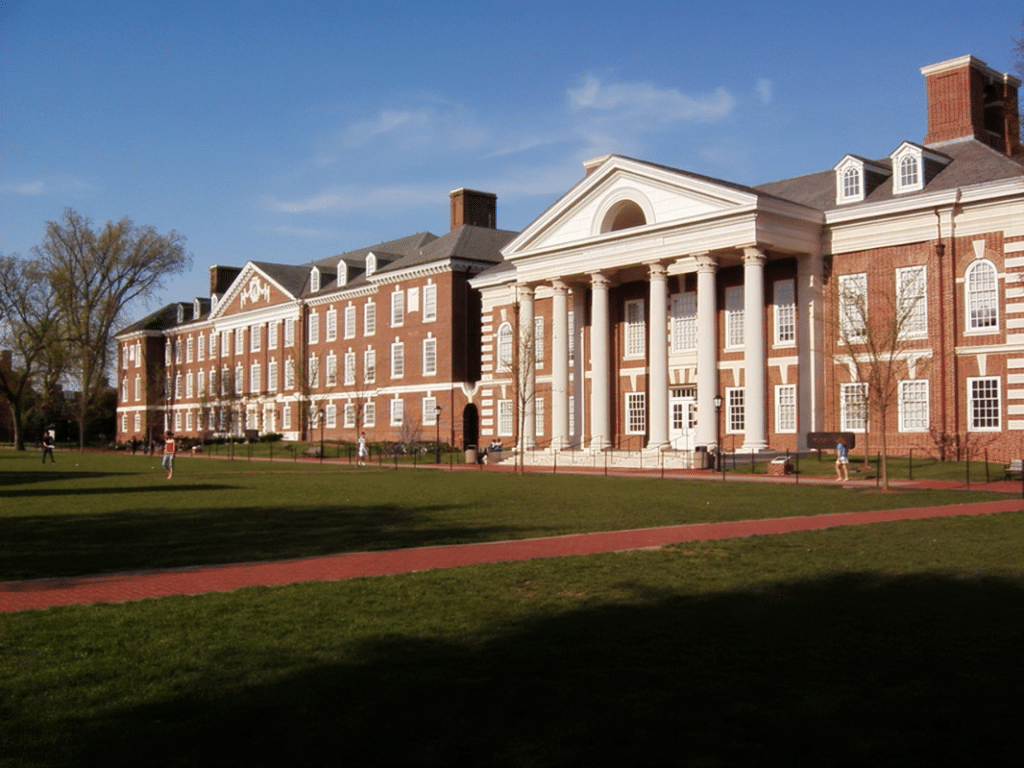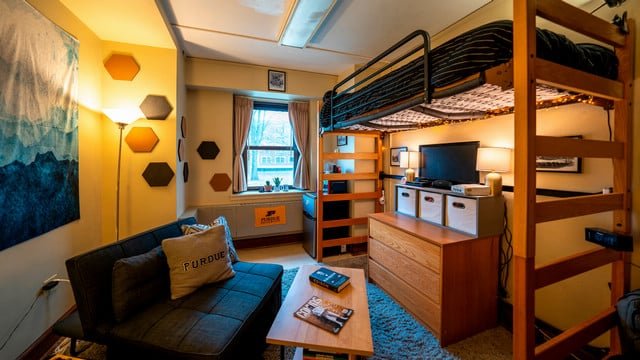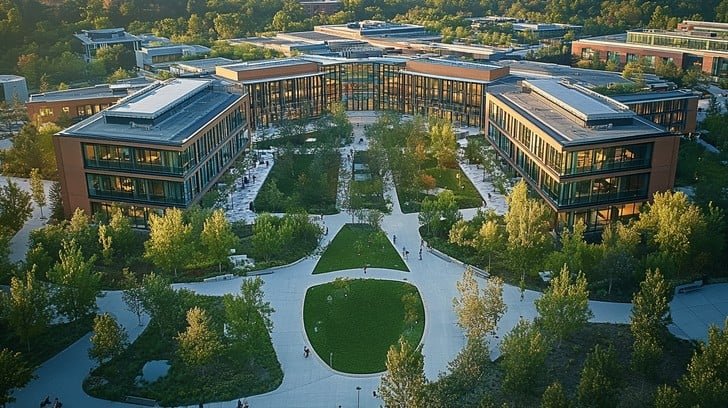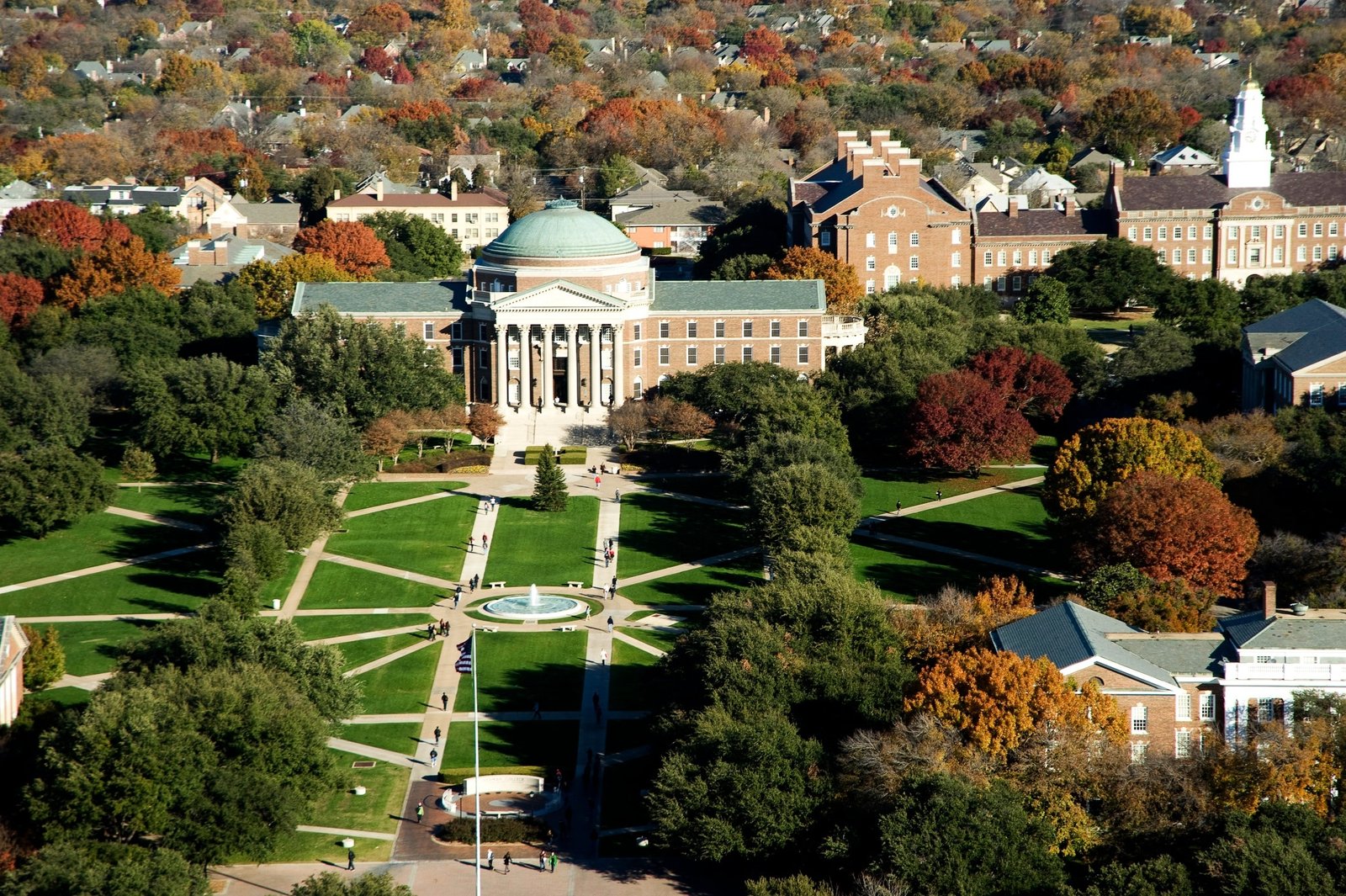The University of Delaware (UD) has long been a leader in promoting environmental sustainability and implementing green initiatives that shape the future of its campus. As an institution deeply committed to advancing eco-friendly practices, UD recognizes the need for significant efforts toward reducing its environmental footprint. The university has taken several steps to promote sustainability, incorporating green practices into campus life, infrastructure, and academic research. These initiatives not only help protect the environment but also educate and engage the next generation of sustainability-focused leaders.
This article will explore the green initiatives that are helping shape the future of the University of Delaware campus, from energy-efficient buildings and renewable energy adoption to waste reduction, sustainable transportation, and academic programs. UD’s commitment to sustainability is evident in its holistic approach, which includes comprehensive campus policies, innovative research, and community engagement.
Key Takeaways
- Commitment to Sustainability: University Of Delaware Campus is deeply committed to sustainability, with clear goals for carbon neutrality, waste reduction, and renewable energy integration by 2050.
- Innovative Green Technologies: The university invests in cutting-edge green technologies, including solar energy, clean tech research, and smart campus systems, to reduce environmental impact.
- Student Engagement: University Of Delaware Campus actively involves students in sustainability initiatives, providing opportunities for leadership roles, academic programs, and participation in green campus organizations.
- Comprehensive Water Conservation: University Of Delaware Campus employs water-saving technologies, stormwater management, and rainwater harvesting to conserve this precious resource and reduce campus water usage.
- Sustainable Dining Practices: University Of Delaware Campus Dining Services focuses on local sourcing, food waste reduction, and plant-based meal options, contributing to a more sustainable food system on campus.
Sustainability at the Heart of University Of Delaware Campus Vision

At the University Of Delaware Campus, sustainability is a core principle that informs nearly every aspect of university operations. The university has developed a Sustainability Plan that outlines its long-term environmental goals, including reducing greenhouse gas emissions, improving energy efficiency, and achieving carbon neutrality. This sustainability roadmap ensures that UD remains at the forefront of environmental responsibility while also aligning with national and global environmental targets.
The university’s approach focuses on the integration of sustainability into academic programs, student life, infrastructure, and research initiatives. University Of Delaware Campus has not only committed to reducing its environmental impact but also to educating the next generation of leaders who will help build a more sustainable world.
Key Areas of Focus:
- Carbon Neutrality by 2050: UD has committed to becoming carbon-neutral by 2050, with a clear action plan to reduce carbon emissions through energy efficiency, renewable energy adoption, and sustainability innovations.
- Energy-efficient Infrastructure: The university is investing in state-of-the-art, energy-efficient buildings and retrofitting older buildings to meet modern sustainability standards.
- Sustainability Education: UD offers academic programs and research opportunities focused on sustainability, environmental policy, and green technologies.
Energy-efficient Buildings and Green Architecture
One of the most visible and impactful green initiatives at the University Of Delaware Campus is the emphasis on energy-efficient buildings and green architecture. UD is committed to creating a campus that is not only beautiful and functional but also environmentally responsible. The university has integrated green building practices into its construction projects to reduce energy consumption and environmental impact.
LEED-certified Buildings
The University Of Delaware Campus has achieved significant milestones in sustainable campus development through LEED (Leadership in Energy and Environmental Design) certification. LEED is the globally recognized standard for the design, construction, and operation of green buildings. Buildings that achieve LEED certification must meet stringent requirements related to energy efficiency, water conservation, and the use of sustainable materials.
Examples of LEED-certified buildings on campus include:
- The Interdisciplinary Science and Engineering Laboratory: A cutting-edge facility designed to meet LEED Silver standards. It includes energy-efficient systems and a green roof that helps with stormwater management.
- The Brown Lab: Another example of UD’s commitment to sustainable building practices, featuring energy-saving technologies and environmentally friendly construction methods.
By designing and renovating buildings with sustainability in mind, UD not only reduces its environmental footprint but also creates spaces that enhance the well-being of students, faculty, and staff.
Energy-efficient Systems
In addition to LEED-certified buildings, UD has integrated energy-efficient systems throughout its campus. These systems include:
- LED lighting: Energy-efficient LED lighting has been installed across campus to reduce electricity consumption and extend the life of light fixtures.
- Smart HVAC systems: The university has installed advanced heating, ventilation, and air conditioning (HVAC) systems that adjust based on occupancy and environmental conditions, optimizing energy use.
- Green roofs: Certain buildings on campus feature green roofs, which help reduce stormwater runoff, provide insulation, and improve air quality.
Renewable Energy Integration

A key component of University Of Delaware Campus green initiatives is the shift toward renewable energy sources to power campus operations. As part of its commitment to achieving carbon neutrality, the university has made significant strides in integrating renewable energy into its energy mix.
Solar Power
The University of Delaware has embraced solar energy as a major contributor to its sustainability goals. The university’s solar energy installations include photovoltaic panels on building roofs, as well as larger solar fields on university-owned properties. These solar panels generate clean, renewable electricity, reducing the campus’s reliance on fossil fuels and lowering its carbon footprint.
One notable example is the solar array at the Science, Technology, and Advanced Research (STAR) Campus, which generates renewable energy for the university while serving as a model for sustainable development in the region. This initiative is part of UD’s broader strategy to incorporate renewable energy into all areas of university operations.
Wind Energy
University Of Delaware Campus has also looked into the potential for wind energy to supplement its renewable energy efforts. The university has been involved in the development of offshore wind farms along the Delaware coast. University Of Delaware Campus research on wind energy, combined with its investment in wind turbines, helps position the university as a leader in renewable energy research and development.
Energy Purchases
In addition to generating its own renewable energy, UD purchases renewable energy credits to offset the carbon emissions associated with the electricity it consumes. This ensures that the university’s energy needs are met through clean, renewable sources, further contributing to its sustainability goals.
Waste Reduction and Recycling Programs
Waste reduction is another critical area of focus for the University of Delaware. The university has implemented a number of waste management and recycling programs to reduce its environmental impact. These initiatives are designed to minimize waste sent to landfills, reduce consumption of resources, and promote recycling across campus.
Comprehensive Recycling Programs
The University Of Delaware Campus has a comprehensive recycling program that encourages students, staff, and faculty to recycle a wide range of materials, including paper, cardboard, glass, plastic, and electronics. The university has strategically placed recycling bins throughout the campus, making it easier for the campus community to participate in recycling efforts.
Food Waste Reduction
UD’s dining services are also committed to reducing food waste. Through partnerships with local food banks, the university donates surplus food to those in need. Additionally, the university has introduced composting programs in dining facilities to divert organic waste from landfills and turn it into valuable compost for landscaping.
Zero Waste Goal
The University Of Delaware Campus has set a zero-waste goal to divert at least 90% of its waste from landfills. This ambitious goal involves improving recycling and composting efforts, as well as promoting awareness and education about waste reduction.
Sustainable Transportation Solutions
Transportation is a significant contributor to the environmental impact of a university campus, and UD has made it a priority to provide sustainable transportation options for its community. The university is focused on reducing its carbon footprint by promoting eco-friendly transportation alternatives.
Public Transit Partnerships
The University Of Delaware Campus has partnered with DART First State, the regional public transportation system, to provide students, faculty, and staff with access to public transportation services. These partnerships encourage the campus community to use public transit rather than driving individual cars, helping to reduce greenhouse gas emissions and traffic congestion.
Bike-Friendly Campus
The university has invested in becoming a more bike-friendly campus, providing bike racks, bike-sharing programs, and safe bike lanes to encourage cycling as a sustainable mode of transportation. UD promotes cycling by hosting bike-to-campus events and offering discounted rates for bike rentals.
Electric Vehicle (EV) Charging Stations
As part of its sustainable transportation efforts, University Of Delaware Campus has installed electric vehicle (EV) charging stations on campus. These stations provide an essential service for electric vehicle owners, promoting the use of clean energy and reducing the reliance on gasoline-powered vehicles.
Sustainability in Academic and Research Programs
At the University of Delaware, sustainability is not only a campus-wide initiative but also a central theme in many of the university’s academic programs and research efforts. The university offers a range of sustainability-focused programs and opportunities for students to engage in environmental research.
Sustainability-focused Academic Programs
UD offers a variety of academic programs related to sustainability, including majors, minors, and concentrations in areas such as Environmental Studies, Renewable Energy, and Sustainable Agriculture. These programs equip students with the knowledge and skills they need to address the complex environmental challenges facing the world today.
Sustainability Research

The university is a leader in sustainability research, particularly in the fields of renewable energy, climate change, and environmental policy. UD’s Center for Carbon-Free Power Integration and Institute for Energy Conversion are just two examples of the university’s dedication to advancing research on clean energy technologies.
Students have numerous opportunities to participate in research projects that contribute to sustainable development and the advancement of green technologies.
Green Campus Initiatives and Student Engagement
The University of Delaware places a strong emphasis on engaging students in sustainability efforts through extracurricular activities, sustainability clubs, and campus-wide events. By fostering a culture of environmental responsibility, UD ensures that sustainability is woven into every aspect of student life.
Student Sustainability Organizations
There are several student organizations at UD dedicated to sustainability, including the Sustainability Task Force and Students for the Environment. These organizations lead initiatives on campus, organize sustainability events, and advocate for policies that promote green practices on campus.
Green Campus Events
UD hosts a variety of sustainability-related events throughout the year, including Earth Day celebrations, sustainability fairs, and eco-challenges. These events serve as a platform for raising awareness about environmental issues and educating the campus community about sustainable practices.
Water Conservation and Management
Water is a vital resource, and the University of Delaware is fully committed to conserving it. UD has implemented several innovative water conservation measures across campus to reduce water consumption, manage stormwater effectively, and preserve this important natural resource.
Low-Flow Fixtures and Water-efficient Technologies
UD has installed low-flow fixtures and water-efficient technologies across its campus buildings, which significantly reduce the amount of water used in daily operations. From faucets to toilets, every aspect of campus facilities is designed to minimize water waste while maintaining efficiency.
Stormwater Management
The university employs advanced stormwater management systems that reduce runoff and improve water quality. By using sustainable landscaping practices, permeable surfaces, and rainwater harvesting systems, UD helps to capture and manage stormwater in ways that benefit the environment. These systems also help mitigate flooding and prevent water pollution, further enhancing the university’s commitment to sustainability.
Water Recycling and Reuse
UD has developed initiatives for recycling and reusing water where possible. This includes capturing and reusing water from cooling systems, irrigation, and other campus operations. By reusing water, UD can reduce its reliance on municipal water supplies and cut down on overall water consumption.
Sustainability in Dining Services
Sustainable food systems are essential to UD’s broader sustainability goals. UD Dining Services plays a crucial role in promoting sustainable dining practices, from sourcing food locally to reducing food waste. These efforts contribute to a more sustainable food ecosystem both on campus and in the surrounding community.
Local and Organic Sourcing

UD Dining Services has worked to establish strong relationships with local farms and food producers to supply fresh, organic, and sustainably grown foods to campus dining halls. By sourcing food locally, UD reduces the carbon footprint associated with long-distance food transportation, supports the local economy, and ensures that students are provided with healthy and environmentally friendly food options.
Reducing Food Waste
One of the key initiatives in UD’s sustainable dining strategy is the reduction of food waste. UD Dining Services encourages students to take only what they need and has implemented measures such as tray-less dining, portion control, and donation of excess food to local food banks. Additionally, UD composts food scraps, turning them into valuable compost for landscaping, which helps reduce waste sent to landfills.
Plant-Based Menu Options

Recognizing the environmental benefits of plant-based diets, UD Dining Services has expanded its offerings of plant-based meals. By providing more vegetarian and vegan options, UD encourages students to adopt sustainable eating habits that require fewer resources, such as water and energy, than animal-based foods.
Green Technology and Innovation
Innovation in green technology is an area where the University of Delaware truly stands out. The university not only teaches sustainability but also fosters innovation in new technologies that can reduce environmental impact and contribute to a greener future.
Research and Development in Clean Tech
UD is actively involved in clean tech research that aims to improve energy efficiency, reduce emissions, and make sustainable energy more accessible. The Center for Carbon-Free Power Integration and the Institute for Energy Conversion are just two examples of research centers at UD that focus on renewable energy technologies such as solar, wind, and energy storage.
Students and faculty at UD engage in cutting-edge research to develop technologies that support the clean energy transition. These efforts are often in partnership with industry leaders, government agencies, and other academic institutions, ensuring that UD’s research is both practical and scalable.
Smart Campus Technologies
The university is exploring ways to integrate smart campus technologies that optimize energy use, water consumption, and waste management. Smart technologies, such as automated lighting and temperature control systems, help UD reduce its environmental footprint while also providing students and staff with a more comfortable and efficient campus experience.
Through its commitment to advancing green technology, UD is not only contributing to the development of new sustainability solutions but is also providing its students with opportunities to engage in meaningful research that will help shape the future of sustainability.
Collaboration with Industry and Local Governments
The University of Delaware’s sustainability efforts extend far beyond its own campus. UD collaborates with local governments, industry partners, and other universities to advance regional and national sustainability goals. This broad approach ensures that UD’s sustainability initiatives have a wider impact and help drive systemic change.
Partnerships for Sustainable Development
UD partners with local governments and organizations to implement sustainable urban planning strategies. One example is the collaboration with the Delaware Department of Natural Resources and Environmental Control (DNREC) to develop programs that promote environmental education and sustainable development practices within Delaware. By collaborating with local partners, UD ensures that its sustainability efforts contribute to the region’s long-term environmental health.
Industry Collaborations for Green Innovation
UD has developed strong ties with green tech companies and other industry partners to foster the development and deployment of new sustainable technologies. Through these collaborations, the university supports innovation that addresses the challenges of climate change, resource conservation, and clean energy, while also creating job opportunities for students and alumni in the burgeoning green economy.
The Role of UD’s Sustainability Task Force
The Sustainability Task Force at UD is a key player in advancing the university’s green initiatives. Composed of faculty, staff, students, and administrators, the task force is responsible for developing and implementing sustainability policies, programs, and strategies across campus. By involving a diverse group of stakeholders in decision-making, the task force ensures that sustainability is a top priority for everyone at UD.
The task force plays an active role in coordinating sustainability efforts across the university, providing resources for student-led initiatives, and offering guidance on how to integrate sustainability into academic programs, research, and campus operations.
Sustainability-Driven Student Engagement and Leadership
The university’s sustainability programs thrive because of the active involvement of students. Students at UD have the opportunity to engage in hands-on sustainability projects, leadership roles, and eco-friendly initiatives that empower them to be environmental advocates both on and off-campus.
Sustainability Clubs and Organizations
There are several student-run organizations at UD that promote sustainability, such as the Environmental Club, Students for the Environment, and The Green Team. These organizations host events, fundraisers, and campaigns focused on raising awareness about environmental issues and encouraging sustainable behaviors among the student body.
Sustainability Leadership Programs
UD offers programs and certifications in sustainability leadership that provide students with the skills and knowledge necessary to take on leadership roles in sustainability. These programs, combined with internships and co-op opportunities, allow students to gain real-world experience in sustainability and green innovation.
Green Campus Events and Celebrations

To foster a strong culture of sustainability, UD hosts green campus events that engage students, faculty, and staff in sustainability-related activities. From Earth Day celebrations to sustainability fairs and environmental clean-up events, these activities offer opportunities for the campus community to come together and take action for a greener future.
The university’s annual Sustainability Week is a week-long event that highlights the importance of environmental stewardship and promotes sustainable practices. During this week, students and faculty participate in workshops, lectures, tree-planting initiatives, and eco-friendly challenges that demonstrate the university’s commitment to sustainability.
Also Read: How Is SMU University Campus On Its Enhancing Sustainability?
Conclusion
The University of Delaware’s commitment to sustainability goes far beyond simply reducing its environmental footprint. Through a multifaceted approach that includes green building initiatives, renewable energy integration, waste reduction, water conservation, and student engagement, UD is making significant strides toward creating a more sustainable future. With a strong focus on sustainability in both academic programs and campus operations, the university is equipping students with the knowledge and tools they need to become the sustainability leaders of tomorrow.
As UD continues to evolve and innovate in its efforts to protect the planet, the university is setting an example for other institutions of higher learning. By embracing sustainability at every level and involving the entire campus community in these efforts, UD ensures that its green initiatives will shape not only the future of its campus but also contribute to a more sustainable world for generations to come.
FAQs
What are the main sustainability goals of the University of Delaware?
UD’s primary sustainability goals include achieving carbon neutrality by 2050, promoting renewable energy, reducing waste, and integrating sustainability into all aspects of campus life.
What green building practices are being used at UD?
UD incorporates LEED-certified buildings, energy-efficient systems, green roofs, and sustainable materials in its construction and renovation projects to reduce energy consumption and environmental impact.
How is UD integrating renewable energy into its campus operations?
UD is utilizing solar energy through photovoltaic panels, exploring wind energy options, and purchasing renewable energy credits to power campus operations with clean energy.
What recycling and waste reduction programs are in place at UD?
UD has a comprehensive recycling program, food waste reduction initiatives, and a zero-waste goal to divert 90% of its waste from landfills.
How is UD promoting sustainable transportation?
UD provides access to public transportation, encourages cycling through bike-friendly infrastructure, and offers electric vehicle charging stations to reduce transportation-related emissions.
Are there academic programs focused on sustainability at UD?
Yes, UD offers sustainability-focused programs in areas such as Environmental Studies, Renewable Energy, and Sustainable Agriculture, equipping students with the knowledge to address environmental challenges.
How can students get involved in sustainability efforts at UD?
Students can engage in sustainability efforts through campus organizations, sustainability events, and by participating in academic and research opportunities focused on environmental sustainability.





